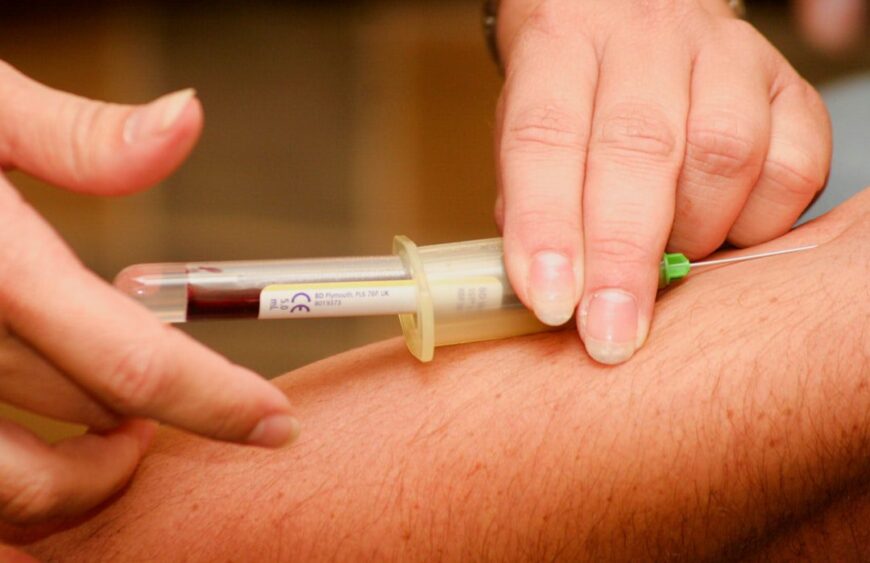Understanding the Value of Routine Blood Work

Many adults haven’t had comprehensive laboratory testing in several years. While some people wait until they experience symptoms like fatigue, weight changes, or other concerns, routine blood work may serve as one valuable component of preventive healthcare when used in partnership with qualified healthcare providers.
What Research Shows About Routine Laboratory Testing
Routine blood work may help healthcare providers identify certain health markers and trends. Common tests like fasting glucose, thyroid hormones, inflammation markers, liver enzymes, and lipid panels can provide healthcare providers with information about how your body is functioning.
According to the CDC, 6 in 10 adults in the U.S. have a chronic condition, and routine screening may help identify some conditions in their earlier stages when more treatment options may be available. However, laboratory results must always be interpreted by qualified healthcare providers in the context of your complete medical history and physical examination.
Common Barriers to Routine Testing
Busy schedules, feeling well, or anxiety about results can prevent people from pursuing routine screening. However, some common conditions may develop gradually without obvious symptoms.
A 2022 study in BMJ Open found that nearly half of U.S. adults with undiagnosed type 2 diabetes reported feeling generally healthy, with their condition identified through routine blood work. This highlights the potential value of routine screening as recommended by healthcare providers.
What Laboratory Tests May Reveal
A basic blood panel, when properly interpreted by healthcare providers, may provide insights into:
- Blood sugar regulation (fasting glucose, A1c)
- Thyroid function (TSH, Free T3/T4)
- Hormone levels (testosterone, estrogen, cortisol)
- Nutrient status (iron, B12, vitamin D)
- Inflammation markers (CRP, homocysteine)
- Liver and kidney function (ALT, AST, GFR)
According to the Mayo Clinic, routine blood work may be one useful tool for monitoring certain health markers when used as part of comprehensive medical care.
Understanding Laboratory Reference Ranges
Laboratory reference ranges are typically based on population statistics. Some individuals may have results within the reference range but still experience symptoms that warrant further evaluation by their healthcare provider. This is why laboratory results should always be interpreted by qualified medical professionals who can consider your complete clinical picture.
If you have concerns about symptoms despite normal laboratory results, discuss these with your healthcare provider who can determine if additional testing or evaluation is appropriate.
The Value of Proactive Health Monitoring
Routine health screening, including laboratory work when recommended by your healthcare provider, may be valuable even when you feel well. The American Heart Association recommends regular blood screening for lipids starting as early as age 20, especially if you have risk factors such as family history of heart disease or diabetes.
TKO Vitality: Wellness Education Services
Educational consultations at TKO Vitality can help you understand available options and prepare informed questions for your healthcare provider. TKO Vitality services are provided by independent contractor physicians licensed in specific states.
- Types of laboratory tests your healthcare provider might recommend
- How to prepare for discussions with your healthcare provider
- Lifestyle factors that may support your wellness goals
Who Might Benefit from Educational Consultations?
Our wellness education may be helpful for individuals who:
- Want to better understand wellness and lifestyle factors
- Are preparing for discussions with their healthcare providers
- Have questions about general wellness approaches
- Want to learn about lifestyle factors that may support their health goals
Remember: Only qualified healthcare providers can determine what laboratory testing is appropriate for your individual situation.
Routine laboratory testing, may serve as one valuable tool in preventive healthcare. Understanding your health markers may help you and your healthcare provider make informed decisions about your care.
At TKO Vitality, we believe education about wellness factors can be valuable when used to support, not replace, professional medical care.
Interested in learning more about wellness education and schedule your lab tests? Visit TKOVitality.co/schedule to learn about our services.
Laboratory testing should only be ordered and interpreted by qualified healthcare providers. Self-directed testing without medical supervision may lead to misinterpretation of results.
No client-provider relationship is established through educational consultations. TKO Vitality is not responsible for medical decisions made based on educational information provided.

Don’t wait, low testosterone affects millions, and time’s running out to take control. Join thousands transforming their lives with TKO Vitality.
This content is for educational and informational purposes only and does not constitute medical advice, diagnosis, or treatment recommendations. Individual results may vary significantly. Always consult with qualified healthcare providers before making any changes to your health plan or before starting any new wellness approaches.
Sources
- Centers for Disease Control and Prevention. “Chronic Diseases in America.” https://www.cdc.gov/chronicdisease/resources/infographic/chronic-diseases.htm
- Weng W, et al. BMJ Open. 2022;12:e054627. “Prevalence of undiagnosed diabetes and prediabetes in US adults.” https://bmjopen.bmj.com/content/12/5/e054627
- Mayo Clinic. “Blood tests: What to expect.” https://www.mayoclinic.org/tests-procedures/blood-tests/about/pac-20384872
- American Heart Association. “Understanding blood pressure readings and cholesterol testing.” https://www.heart.org






